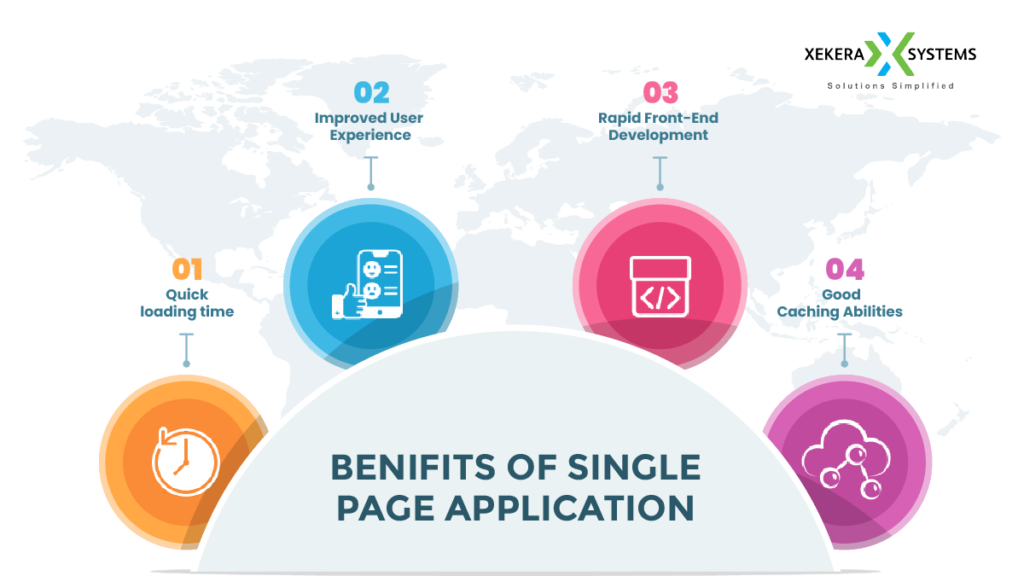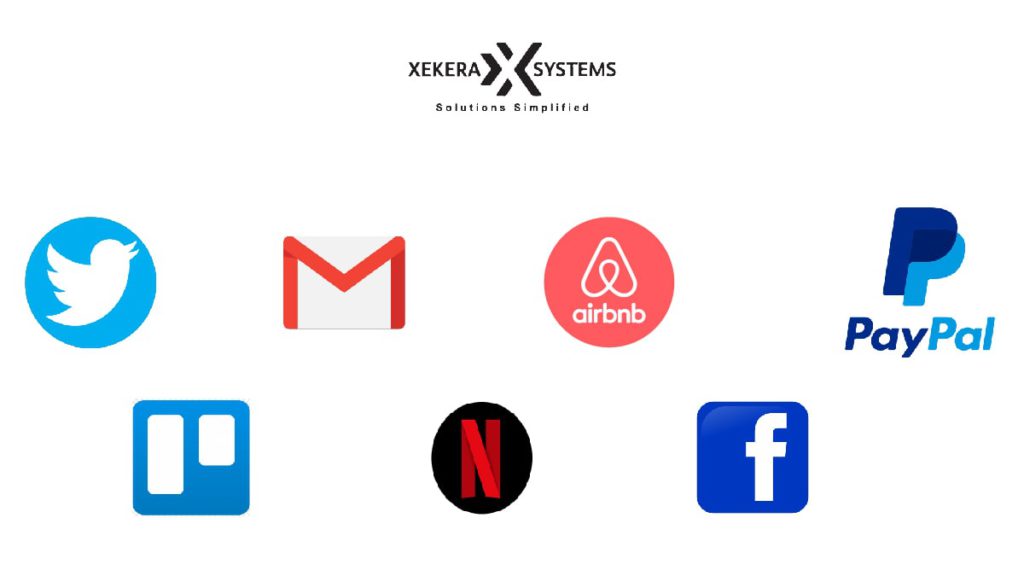What is Single Page Application. A Complete Guide
The most sustainable way to make a business successful in today’s competitive and fast-changing digital age is to create user-centric websites and applications. An online platform is important for your business to be recognized among users.
In short, the online platform provides a seamless experience for users and has led businesses to dig deeper and get a new way to reach customers online.
This is the main reason why organizations are moving towards building multiple parts of their web application with this newly coined term “Single Page Application (SPA)”.

So what is a single page application and why was there a need for a SPA?
In the past, browsers were less powerful compared to today’s site. Every time you click on something, a new page is loaded from the server, which is time consuming. However, the same is not the case with a single page application. It only reloads data requested by the user, speeding up the process.
That’s how single-page applications came into the picture. If you have a great idea for a web application and are looking for the perfect technology to build your application, then this blog is for you.
Interested in learning more about this single page web application? Let’s dive deep into it!
What Is A Single Page Application?
As the name suggests, this is a single site where all the information is available on the same page. It is even known as a type of web application architecture used to manage web application components.
Whenever you click something or scroll the page, only a few elements change and the rest stays the same. Single page app tracking works in the browser and doesn’t require any extra page load time. SPAs will only retrieve the information you request with a click. For example, when you’re looking at email, you’ll notice that all the information in the sidebar or header will remain as it is when you go through your inbox or anything like that.
From a technical perspective, single-page web applications are a design approach with HTML5 and modern browsers that allows page and user interface logic to be moved from the server to the browser in less time. It uses JavaScript, HTML and CSS to load resources dynamically.
The thing to always remember with SPA is that the page does not reload or transform the control to another page at any point in the process.
It’s a win-win situation. Users don’t have to wait long for information, and the server has to send less data. This approach improves the overall user experience.
Best Examples Of Single Page Apps
The websites below are the ones you use in your daily life. But you may not have known that they are built as a SPA.

But the list does not end there, there are tons of SPA examples. So what do you think? Why did all these big companies go for the single page app approach?
Advantages Of Single Page Applications
SPA has huge benefits. Let’s go through some of them.
Fast Loading Time
In single page web applications, once the page loads, the server no longer sends any HTML or CSS. Whereas with traditional, the entire page is reloaded every time new data is requested.
So quick interchangeability makes single page web applications useful for sites that need to use the same template countless times. According to Google research, if a page takes more than 200 milliseconds or around 200 milliseconds to load, it has a big impact on business and sales.
Good Caching Capabilities
One of the best advantages of single page app development is that it can efficiently cache any local data. SPA only sends one request and stores all data from the server. Since there is 24/7 access to data, users can work offline. This is where local data is synchronized with the server.
Improved User Experience
Single page web applications are amazing for creating innovative sites and provide an amazing user experience. Because users don’t have to wait for a new page to load. Dynamic loading of content provides a seamless user experience.
Fast Front-End Development
SPAs allow developers to build front-end development faster than before.
The main reason is the separate architecture of the single page application. It separates front-end and back-end development services. With this separate setup, developers can build, test, and deploy the front end independently.
Everything here works through an API that follows standard rules for how to structure, exchange, and retrieve data. APIs allow developers to work independently and quickly.
Disadvantages Of Single Page Application Architecture
In addition to the advantages, there are also several disadvantages to SPA.
Optimization For Search Engines
It is a common perception that SPAs do not have a good impression of search engine optimization. The main reason is single-page web applications running on javascript. Data will be downloaded here when users submit a request. With all this, the URL of the page remains the same because different pages do not have a unique URL. Furthermore, it is difficult to optimize for search engines because search engines cannot crawl the pages.
Google search is now improving to optimize the SPA page, but developers need to make sure that the JavaScript files they create are indexed by Google. This is because Google has its own search engine.
Complex SPA Comes With A Problem
When you’re building a complex single-page app, it can be inconvenient to use because of its size. They don’t work well with such complexity. Page load time may increase due to its complexity. This can create a poor user experience and can reduce user engagement.
Analytics
We know that analytics tools can track pageviews just by adding a single piece of code to the page. But the situation is not the same as single page web applications. Because SPAs are not real sites. You need to add tracking logic and you need to ensure that the analytics tool picks up a new page without having to refresh the page. However, adding new logic to the code becomes a bit of a cumbersome task.
When To Use A Single Page Application?
Single page web applications are an ideal choice when thinking about future web development. This architecture is a perfect choice for social networks, SaaS platforms or some close-knit communities where SEO is not important. However, if your project needs effective SEO, we recommend you to use a multi-page application.
On the other hand, if you want excellent and rich communication between your application and users, then the SPA approach is a must. So, if you need real-time page updates, a single-page application architecture will suit you best.
These are some of the situations that require a SPA approach.
Now a curious question comes to your mind, “How to build single page apps”, right?
Let’s find the perfect answer to that!!
How To Create A Single Page Application?
The two cornerstones that will help you create the perfect one-page app are tools and a team. Let’s go through both of them in depth.
Single Page Application Technologies And Tools
Below are the technologies and tools you will need to create a single page application.
JavaScript Frameworks
The first and most important thing needed to create a single page application is javascript frameworks. We have already mentioned the top javascript frameworks later in this article.
Backend Technologies
When it comes to the backend technology for a single page web application, you can choose any one according to your needs. Be it PHP frameworks or Node.js, all of them will work well for single page application development.
Database
According to our experience and popularity, MongoDB and MySQL are the best choice for database in such web applications. In short, it will suit your single page application best.
AJAX
It is an essential technology for running single page web applications. AJAX is responsible for client and server data exchange.
Single Page App Development Team
The best option for creating a single page application is to hire an entire development team. They will not only help you to create an error free one page app but also come up with unique ideas for the same.
All you need is to hire a team that has experience in building such web applications and has good reviews from clients. Your single page app development team must include:
- UX/UI designers
- Backend Developers
- Frontend developers
- Qualitative analyst
- Project Manager to ensure the whole team is on the same page
Single Page Application Frameworks
If you are considering building your project with SPA, then choosing a powerful framework is important. Here I have listed some of the best SPA frameworks.
- Angular.js
- React.js
- Backbone.js
- Ember.js
Here’s a comparison table between all four frameworks to give a better idea on which framework will suit your project the best.
| Framework | Angular.js | React.js | Ember.js | Backbone.js |
|---|---|---|---|---|
| Description | Best JavaScript MVVM Framework | JavaScript Library for Building UI | Used for building aspiring web apps. | JavaScript MVC framework |
| Founded | 2009 | 2013 | 2011 | 2010 |
| Licenses | MIT | MIT | BSD-3-Clause | MIT |
| Popular Websites | Youtube, Freelancer, Weather | Facebook, Airbnb, Instagram | Netflix, Apple Music, Linkedin | Trello, Pandora, SoundCloud |
| Ideal For | Creating highly interactive web apps | Large Web Apps whose data changes frequently | Dynamic SPAs | To give structures to structure to web apps |
| Homepage | https://angularjs.org/ | https://reactjs.net/ | https://emberjs.com/ | https://backbonejs.org/ |
Above all, Anjular.js development is the best single page application framework. It is widely used to create client-side SPAs.
Quick View: Single Page Vs. Multi-Page Applications
A single-page application only loads the required information, while a multi-page application reloads and downloads the entire page content again. It is one of the main differences between multi-page and single-page web applications.
To give you a quick idea of both, single page app design is best when you target user engagement and ignore SEO. While a multi-page app design will expand your reach to potential users, it is good for SEO optimization and stick to a traditional navigation system. In short, if you have a large company with so many products to describe, a multi-page application is a good choice. And if you want a dynamic platform targeted at a narrow set of users, a single page app is the way to go.
Are you ready to use a single page application in your project?
Everything has its pros and cons, but you need to make a decision keeping your needs in mind. SPAs are the right choice for future web application development.
Startups that plan to develop a product to engage users and increase visibility, then the key thing to explore at best is SPA.
So that was all about the one page application and its implications. If you have decided to create a single page web application, but you are still confused, do not hesitate to talk to our experts!!













